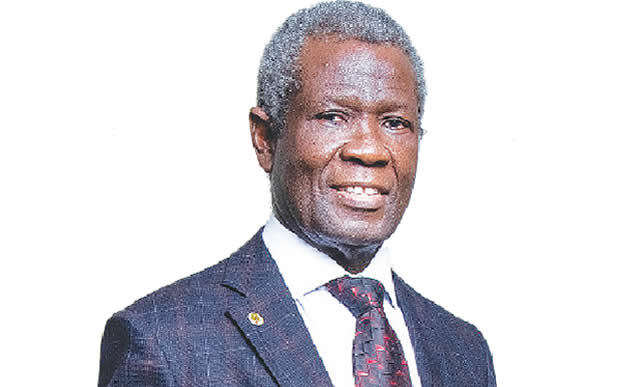
The letter titled ‘Re: Bill seeking to restrict newly qualified medical doctors and dentists from leaving Nigeria,’ was dated April 20, 2023.
The letter, made available to our correspondent on Saturday, was addressed to the Speaker of the House of Representatives, Femi Gbajabiamila; the Clerk of the National Assembly, Magaji Tambuwal; Chairman of the House of Representatives Committee on Public Petition, Uzoma Nkem-Abonta; House Committee on Health, Sununu Yusuf.
The Academy also addressed the letter to the sponsor of the bill, Ganiyu Johnson; the Chairman Senate Committee on Health, Ibrahim Oloriegbe; and the Permanent Secretary Ministry of Health, Mahmuda Mamman.
The letter was signed by the President of the Academy, Prof Oladapo Ashiru, and the Secretary, Prof Olufemi Ogunbiyi.
The bill, Johnson said, would check the mass exodus of medical professionals from the country.
But the Academy said the proposed bill cannot achieve the result that is envisaged but has the potential to cause grave harm to the public health system and is liable to violating the human rights of doctors and dentists.
It said the causes of the brain drain of doctors and other health workers are the push and pull factors.
“The push factors include unemployment (lack of job opportunities within the public health system and unsupportive environment for private practice), poor conditions of service, including non-competitive remuneration of health workers, poor work environment, including grossly inadequate resources to support the delivery of quality health care, and low morale due to excessive workload. The generally poor social services in the country and insecurity are also contributory factors to the desire to emigrate by doctors who are otherwise eager to serve their country.
“The pull factors include the attractive conditions of service in the destination countries, including higher pay, availability of tools and equipment to work with, and the better social services and security of life. Some destination countries also conduct aggressive recruitment activities to attract healthcare personnel to their service,” the letter read in part.
On the possible solution to the brain drain, the Academy body said Nigeria needs to attend to the push factors to reduce the problem of brain drain of health workers.
“The country must substantially increase investment in public health. Our budgetary allocation is too low to support a strong public health system. Even within the African continent, we are not making adequate provision for population health care. For example, a budget allocation of about 3.03 per cent in 2019 compared poorly with that of 9.1 per cent in South Africa.
“The per capita spending on health in 2022 of $8.03 is one of the lowest even in Africa. The remuneration of health workers needs to be substantially improved, not least because of the economic dictate of supply and demand of labour.
“Even within Africa, our doctors and other health workers are comparatively very poorly paid. Careful use of incentives such as loans to purchase personal vehicles and access to mortgages can significantly boost morale and reduce the attraction of emigration. Positions have to be created or opened up in the public health system to offer jobs to young doctors and dentists.”
It, however, said restricting doctors from migrating is not the solution to the brain drain.
“What cannot be the solution is any restriction on the ability of doctors and other health workers to travel abroad to work. Such a coercive approach will clearly be in contradiction to the right to freedom of movement as enshrined in several international charters (International Covenant on Civil and Political Rights, article 12.2; Universal Declaration on Human Rights, article 13; African Charter on Human and People’s Rights, article 12).
“The proposed bill may be seen as an attempt to deny Nigerian doctors and dentists that right. It also discriminates against this specific group of healthcare workers given that the problem of brain drain permeates all sectors of our economy, including other groups of healthcare workers who are not being targeted by the bill.
“The Academy believes that the proposals in the bill are counterproductive as they seek to prolong the period when a doctor is restricted from full practice due to lack of professional registration. That prolongation will adversely affect our residency program and the training of future specialists since doctors and dentists need to be fully registered to participate in the program. That cannot be the intent of the sponsor of the Bill. Finally, the assumption that doctors and dentists need to be fully registered in Nigeria before they can find jobs outside the country is erroneous. Indeed, some of these professionals do emigrate before or shortly after housemanship.
“The implication of all these is that the bill, even if passed, will not achieve the goals for which it is intended.
“Finally, the Academy would like to reassure the Honorable House of its readiness to contribute to any meaningful attempt aimed at addressing the problem of brain drain of health workers from the country, a problem which it considers a continuing threat to the goal of meeting the health needs of the population,” the letter added.





